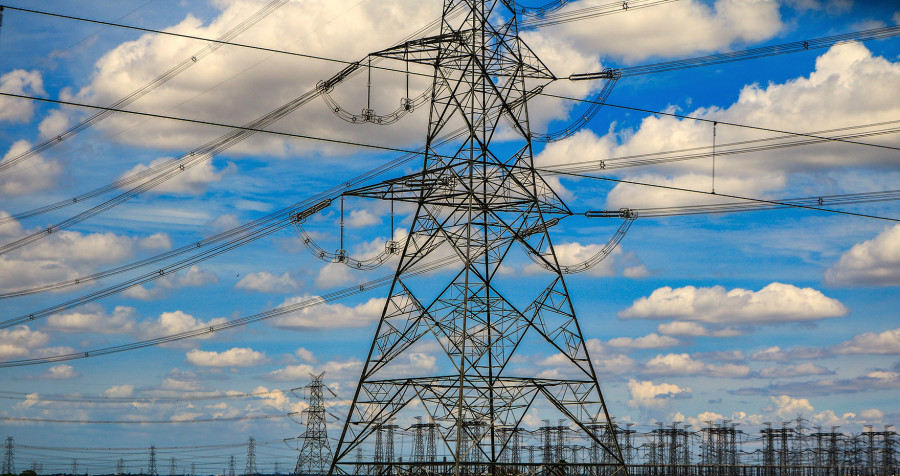Money
Nepal likely to export power to Bangladesh using Indian grid
Tripartite meeting to be held within three months to fix transmission modalities and commercial terms.
Prahlad Rijal
According to officials, the Seventh Joint Steering Committee meeting on Nepal-India Cooperation which concluded on Tuesday has decided to hold a tripartite meeting within three months.
"The meeting is expected to fix transmission modalities and commercial terms for use of the Indian grid, paving the way for direct power trade between Nepal and Bangladesh through India," said Dinesh Ghimire, secretary of the Ministry of Energy, Water Resources and Irrigation.
“We have proposed to trade electricity with Bangladesh in a cost-effective way by paying surcharges for using Indian transmission lines as fixed by Indian regulations rather than transacting power through an Indian commercial entity acting as an intermediary between Nepal and Bangladesh.”
Nepal's proposal is compatible with the 2014 power trade agreement between Nepal and India which states that the parties shall allow non-discriminatory access to cross-border interconnections for all authorised and licensed participants in the common electricity market.
According to Ghimire, Indian energy officials have agreed to call a trilateral meeting through India’s Ministry of External Affairs to settle the commercial terms for Nepal-Bangladesh electricity trade through Indian territory within three months.
In June, Nepal and Bangladesh had decided to explore possibilities of using Indian transmission lines passing through the Siliguri corridor, also known as Chicken's Neck, following amendments to cross-border energy trading regulations by India.
The southern neighbour in March relaxed earlier provisions related to cross-border energy trade and gave explicit recognition to tripartite arrangements.
“The Transmission Planning Agency of India in consultation with the Transmission Planning Agency of the neighbouring country shall grant access to the Participating Entities to use Cross Border Transmission Link for cross border trade of electricity,” states India’s Cross Border Trade of Electricity Regulations, 2019.
In line with the amendments, the secretary-level meeting between Nepal and Bangladeshi energy officials concluded that a power trading mechanism could be outlined by taking into account India's Guidelines for Import/Export (Cross Border) of Electricity 2018 and Central Electricity Regulatory Commission (Cross Border Trade of Electricity) Regulations, 2019 issued in March 2019.
Also, Nepal and Bangladesh have pledged to make their best efforts to devise such trilateral arrangements during multiple meetings between the two.
The 15th Joint Steering Committee meeting between Bangladesh and India has also agreed to build transmission lines in a synchronous mode for smooth exchange of power between the countries.
Nepal and India have also agreed to invest in a second high capacity cross-border power line, the 400 kV New Butwal-Gorakhpur Transmission Line, to synchronise the power grid of the two countries.
Bangladesh, one of the fastest growing economies aided by its manufacturing sector, is an energy-hungry nation which makes it a lucrative market for power produced in Nepal. To satisfy its power demand, Bangladesh has floated plans to import around 9,000 megawatts from Nepal over the course of a decade.
Authorities from the two countries have planned to study and invest in 20 major hydropower projects proposed in the white paper released by the Energy Ministry in May 2018.
In April 2017, Bangladesh signed a memorandum of understanding with India’s NTPC Vidyut Vyapar Nigam to import 500 megawatts of electricity from the 900 megawatt Upper Karnali Scheme being built by Indian developer GMR in western Nepal.
However, GMR and the Bangladesh Power Development Board are yet to finalise a power purchase agreement on trading electricity generated by Upper Karnali through the Indian grid.
According to GMR Upper Karnali Hydropower, all key commercial clauses of power offtake negotiations with the Bangladesh Power Development Board have been finalised; and an agreement on the tariffs, which has hindered financial closure, is likely to be made within March 2020.




 8.22°C Kathmandu
8.22°C Kathmandu














